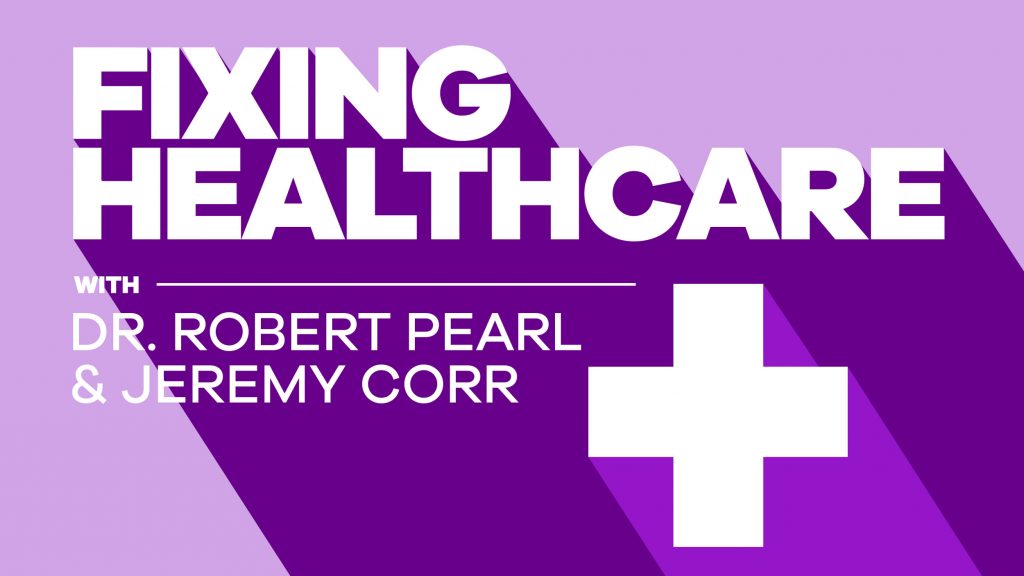At the end of Episode 9, Fixing Healthcare co-hosts Dr. Robert Pearl and Jeremy Corr turned to listeners for ideas and suggestions.
This regular feature of Season Two comes by way of the Fixing Healthcare Survey. Please continue to give us your input. Robert and Jeremy might share your ideas on a future episode.
This month, three listeners told us that they would fix healthcare by more closely regulating the pharmaceutical industry.
Transcript from Fixing Healthcare (Episode 9)
ROBBIE: Thank you again, Elisabeth. And now, before we go, let’s take a few minutes to hear from our listeners. We asked for your ideas to fix American healthcare and have received nearly 200 responses. Remember, if you have solutions for our broken system, visit the Survey To Fix American Healthcare on my website at www.RobertPearlMD.com. We’ll continue to spotlight your feedback throughout Season 2.
JEREMY: Today, we’ll hear from listeners who wrote in about the pharmaceutical industry.
Longtime listener Leon Scott, MD suggests we should make list prices public. Although he acknowledges these are rarely the negotiated prices that insurers pay, Leon believes that making the public aware of the exorbitantly high suggested price of drugs will shine a light on the problem overall and allow market forces to lower costs.
Gary Roach, MD, believes prices for drugs and medical equipment should be set at the national level.
J.W. says that because big pharma is unable to regulate itself, the government must step in and cap prices.
Robbie, could you provide your thoughts on drug pricing and pharmaceutical industry regulations?
ROBBIE: I agree with each of our listeners. Like Leon, I concur that transparency is important. Drug companies hide their prices because they are embarrassed and ashamed. They get away with it because of their monopolistic control of the market.
I agree with Gary’s idea to intervene at the national level. In several other countries, a national review board compares the efficacy of drugs, analyzes drug company research & development, and either sets reasonable pricing ranges or negotiates directly with the manufacturers.
Finally, I concur with J.W. that big pharma has no intention of regulating itself. The American people are paying the price and I’m sickened by the reality that some children with juvenile diabetes are getting only a fraction of the insulin their doctors prescribe. That’s not because of a drug shortage. It’s because their parents can’t afford the cost, which is two to five times higher than the prices paid in other countries.
JEREMY: Thanks to Leon, Gary, J.W., and everyone who has participated so far in the “Survey To Fix American Healthcare.” You can find all three listener comments on the Fixing Healthcare website. We also invite you to leave your own thoughts and recommendations at www.RobertPearlMD.com. Next month, we’ll share more ideas and suggestion from our listeners.
READ: Full transcript of Episode 9 with Elisabeth Rosenthal
* * *
Fixing Healthcare is a co-production of Dr. Robert Pearl and Jeremy Corr. Subscribe to the show via Apple Podcasts or wherever you find podcasts. Join the conversation or suggest a guest by following the show on Twitter and LinkedIn.

